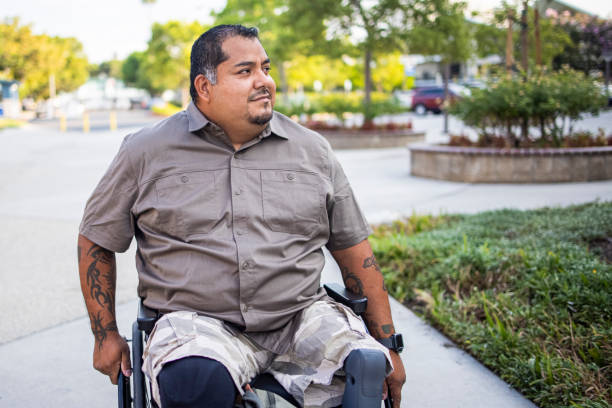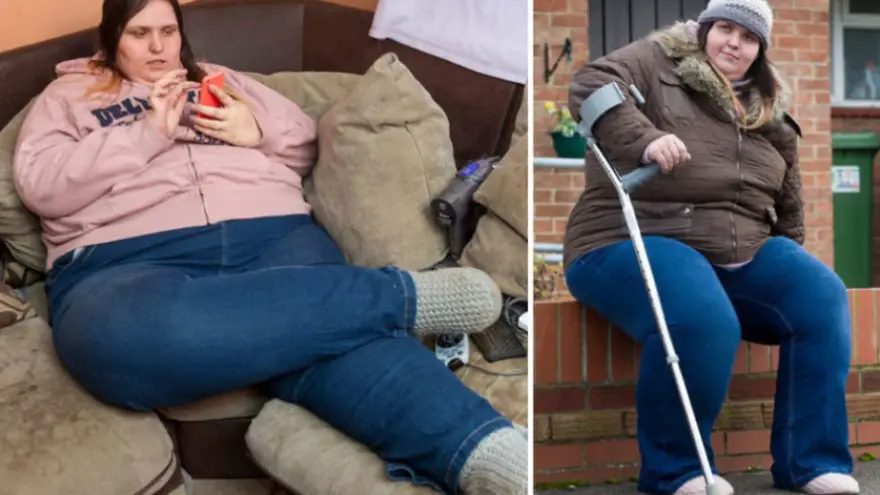I keep hearing the same question every day – how fat or obese do I have to be to get a disability and be eligible for the social security disability insurance?
I’m pretty sure you have the same question on your mind and wouldn’t mind asking me if we got a chance to meet physically.
No worries!
This article answers the question and other information you seek about obesity impairments. You can figure it all out here because this is a journey I am very much familiar with.
Ready?
Here we go.
Table of Contents
- What Makes Obesity a Disability?
- What is the Minimum Body Max Index for Fat as a Disability?
- How to Hire an Attorney to Help You Get Disability Benefits for Your Obesity
- Health Risks of Being Obese
What Makes Obesity a Disability?
The case of whether obesity is a disability or not has become a controversial issue.
Many people have rendered their options on the issue. While some people agree that obesity is a disability, others have waved it off, saying obesity alone doesn’t qualify for disability benefits.
But as an expert in this area, believe me when I say that obesity is a disability if it’s due to underlying physiological conditions. So you may not be considered disabled if you cannot prove that your obesity was from a physiological disorder, environmental, genetic, or behavioral factors.
One study shows a link between obesity and disability, which backs up the statement above. It shows that 30% of obese adults have a disability and 36% of disabled persons are obese. See the difference?
So, think about it this way; morbid obesity is a disability. Excess body fat caused by either behavioral, genetic, or environmental factors prevents the victim from doing a full-time job.
Related: How to Easily Change a Diaper in a Wheelchair (Complete Guide)
What is the Minimum Body Max Index for Fat as a Disability?

You must have a body mass index (BMI) of 30 to 40 to qualify as a morbid disability.
If your BMI is lesser than 30, you are not fat enough to get a disability. In fact, you might have to prove the physiological cause of your obesity to get a disability.
Here’s the rub. Obesity is sometimes associated with health conditions like heart diseases and diabetes. So, even if your weight does not pass for a disability, the associated medical conditions will pass for a disability.
How to Hire an Attorney to Help You Get Disability Benefits for Your Obesity
If you’re obese, hire an attorney to help you get disability benefits before recovering from your obesity.
Excess fat can lead to many underlying medical conditions that inhibit your work performance. It could even stop you from working.
Ask for recommendations
When it comes to legal matters, you should hire only experienced attorneys to avoid wasting your time and money. The best way to get a good attorney to help you get disability benefits is to ask friends, family, and neighbors for recommendations. Someone out there may know a very good attorney that can help you win your case, but you wouldn’t know except you ask.
Make your findings
It is not enough to get recommendations from friends and family. Ensure you conduct your findings to not fall victim to quacks parading themselves as attorneys. Make sure to ask your attorney for their portfolio and testimonial.
It will enable you to understand their strategies and how they work in each case. Don’t hesitate to ask your attorney questions that may be bothering you.
Related: How to Wash Someone’s Hair in a Wheelchair
Start a treatment
The odds of winning the case are greater when there’s proof of you going through treatment for your obesity. Then, the court will quickly give you disability benefits pending the time you recover from your obesity. You may want to check out with a doctor on the treatment procedures to cut down on excess fat.
Discuss with your attorney
This point is where you come out plain and let your attorney have every detail about your medical condition. Feel free to tell them about other health issues associated with your obesity. It has a greater influence on helping you win the case.
Let them know if an employer has refused to hire you because of your weight. The more your evidence of fat as a disability, the more the chances of you getting a disability benefit.
Then, you also need to discuss the payment method with your attorney. How they want to be paid, probably hourly or milestones. It’s crucial to sort out these issues for a hassle-free case. You will find affordable ones out there, so you don’t have to break the bank to get disability benefits.
What are the signs of being fat, and how does it affects the quality of life?
There’s no special diagnosis for overweight, as it is usually self-diagnosed. As earlier mentioned, a BMI higher than 30 is considered fat and unhealthy. And it comes with symptoms like snoring, insomnia, shortness of breath, excessive body fat, excessive sweating, daytime drowsiness, and fatigue.
Let’s take a closer look at some of the health risks of being fat.
Health Risks of Being Obese

Type 2 diabetes
Research shows that the risk of having type 2 diabetes was higher in people with a BMI of 35. Fat cells cause inflammation which lowers the body’s response to insulin, resulting in high blood sugar levels. This phenomenon explains why diabetes is common among people battling obesity.
Sleep and breathing problem
It’s no news that excessive body fat causes sleeping and breathing problems, including sleep apnoea. Obesity drastically reduces sleep quality, leading to other medical conditions.
Body pain
Excessive weight puts much pressure on the joints, muscles, and bones and causes increased limb and back pain. Obese people are often diagnosed with arthritis and other severe musculoskeletal disorders.
Related: Is Having One Leg Longer Than the Other a Disability? (Answered)
Anxiety and depression
Overweight people don’t feel good about themselves and tend to have low self-esteem, which leads to depression and moodiness. In fact, anxiety and depression have become common among obese people. It’s almost impossible to find an obese person who feels good about himself. Instead, start the fanatic race of losing excessive fat.
Gall bladder disease
Studies show obesity has some connection with gall bladder disease, stroke, cardiovascular death, and coronary artery disease. Experts also suspect an association between obesity and cancer, although there are no clear links to give a verdict.
Others
Other consequences of obesity are high blood pressure, death, low LDL cholesterol, and high LDL cholesterol.




